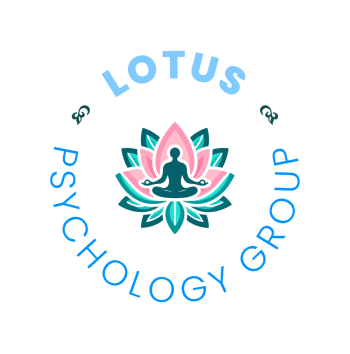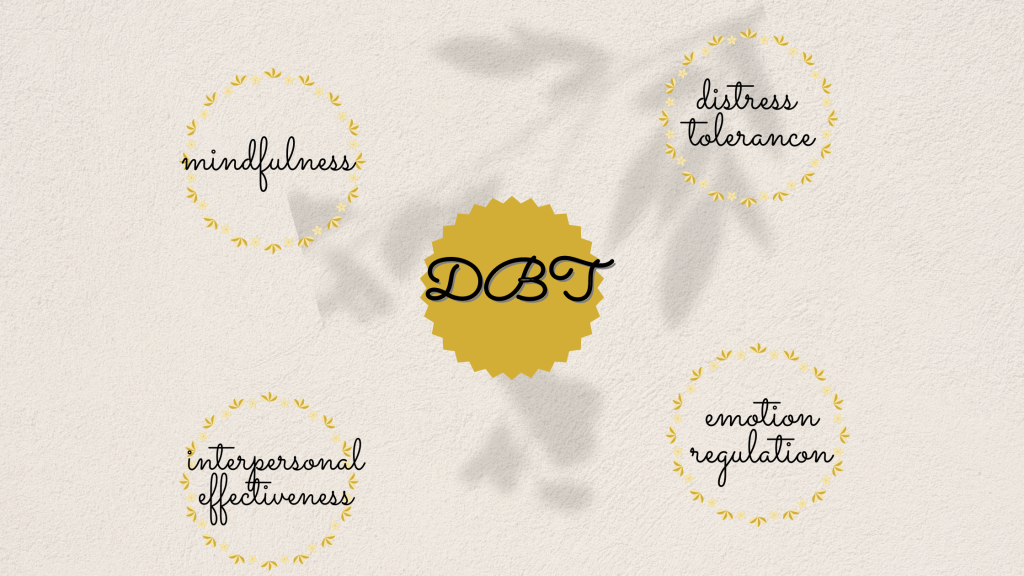Most people who schedule therapy sessions don’t request a specific approach to counseling, and in many cases, they never even know what approach is being used. Therapists have training and experience in a variety of counseling methods, and they utilize them as needed to support their clients. Dialectical behavior therapy (DBT) is an exception to this typical therapy process in that the client and therapist will talk about this form of therapy, the benefits, and what to expect during sessions before beginning. The sessions themselves may seem a lot like traditional talk therapy, but there is a unique structure that is followed closely. In this blog, you’ll learn more about DBT, including what it is, how sessions work, and what you can expect from this approach to therapy.
What Is DBT?
DBT is a structured form of talk therapy that was developed out of cognitive behavioral therapy (CBT), which is a form of therapy used to explore the interconnectedness of thoughts, feeling, and actions. DBT specifically supports individuals who experience emotions intensely by helping them achieve a greater sense of acceptance of the realities of life and use this acceptance and deeper self-awareness to make positive changes. DBT is defined by the meaning of the word dialectical, which means acting through opposing forces. DBT was developed in the 1970s to help individuals who needed to achieve action through opposing forces.
Who Should Consider DBT?
DBT was developed to support individuals who struggle to regulate emotions. When intense emotions seem to be ruling a person’s thoughts and actions, DBT helps them develop healthy coping skills and increase resilience. Specifically, it has been proven beneficial for those who are struggling with a number of diagnoses, including:
Borderline personality disorder (BPD)
Post-traumatic stress disorder (PTSD)
Suicidal ideation
Substance use disorders
Eating disorders
Self-harm
Mood disorders like depression and anxiety
How Does DBT Help?
Other forms of therapy support people by helping them understand what thoughts, feelings, and actions are causing struggles. From there, they are able to start making small changes that ripple out to improve their lives. With DBT, rather than working to change the specific actions, the focus is on improving the ability to cope with intense emotions. This results in numerous positive effects, including:
Reduced incidence of self-harm
Diminished risk for suicide
Decreased incidence of inpatient care
Lessened misuse of drugs and alcohol
Improved mood disorder symptoms
What Happens During DBT Sessions?
While DBT is a more structured approach to counseling than most other forms of counseling, there are usually four main types of DBT sessions:
Assessment sessions – during this initial evaluation session, your therapist will talk with you to determine whether DBT is the right approach for your needs. During this session, you’ll also be able to ask any questions you have about DBT.
Individual therapy sessions – these weekly talk therapy sessions are the backbone of DBT. The goals of these sessions will vary based on individual needs, but they usually work to understand the intense emotions that lead to struggles. From there, you’ll develop coping strategies and learn strategies to replace poor coping mechanisms.
Group DBT sessions – unlike traditional group therapy that involves sharing struggles and discussing difficulties with people who have similar challenges, DBT group sessions are more like classrooms. The participants will all be working together to learn and practice specific skills, including mindfulness, distress tolerance, interpersonal effectiveness, and emotional regulation.
Crisis coaching phone sessions – outside of sessions, there will likely be times when you need immediate support during your day-to-day life. Crisis coaching sessions take place in those moments and give you access to your therapist when you need them most to help you keep moving forward with your goals in a safe and supported environment.
Getting Started
If you’re interested in learning more about DBT or any other approach to therapy, the Lotus Psychology Group is here for you. To get started, call (248) 957-8973, email info@lotuspsychgroup.com, or complete our scheduling request form.

